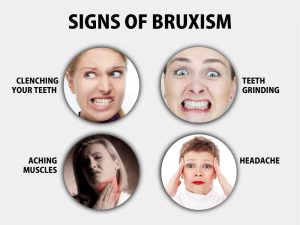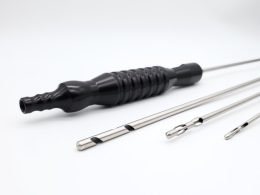Introduction
Teeth clenching, medically termed as bruxism, is a common yet often overlooked condition that affects many individuals, particularly during nighttime. The act of grinding or clenching one’s teeth, especially during sleep, can lead to various dental issues, discomfort, and even pain. In this comprehensive guide, we will delve into the depths of bruxism, exploring its causes, symptoms, and most importantly, effective methods to mitigate and cease this nocturnal habit. Explore More About (Motion Sickness)

Understanding Bruxism
Bruxism manifests itself in various forms, ranging from mild to severe, and can affect individuals of all ages. While occasional teeth grinding may not raise significant concerns, chronic bruxism can have detrimental effects on one’s dental health and overall well-being.
Causes of Bruxism
Bruxism can be attributed to a multitude of factors, including:
- Stress and Anxiety: High levels of stress or anxiety can trigger bruxism episodes, especially during sleep.
- Malocclusion: Misalignment of the teeth, known as malocclusion, can contribute to bruxism as the jaw attempts to find a comfortable resting position.
- Sleep Disorders: Conditions such as sleep apnea can increase the likelihood of bruxism episodes.
- Lifestyle Factors: Habits like excessive alcohol consumption or smoking have been linked to bruxism.
Symptoms of Bruxism
Identifying the symptoms of bruxism is crucial in addressing the condition effectively. Common signs and symptoms include:
- Grinding Noises: Often reported by partners or family members who notice the sound during sleep.
- Morning Headaches: Waking up with headaches or facial pain is a common indicator of bruxism.
- Jaw Pain: Persistent discomfort or pain in the jaw muscles, especially upon waking up.
- Tooth Sensitivity: Increased sensitivity or pain in the teeth due to enamel wear caused by grinding.

Methods to Cease Teeth Clenching
Addressing bruxism requires a multi-faceted approach, combining lifestyle modifications, stress management techniques, and dental interventions. Here are several methods to help cease teeth clenching and alleviate its associated symptoms:
1. Stress Management Techniques
Since stress and anxiety are primary triggers for bruxism, incorporating stress management techniques into daily routines can significantly reduce the frequency and intensity of grinding episodes. Consider the following strategies:
- Mindfulness and Meditation: Practicing mindfulness and meditation can help calm the mind and alleviate stress.
- Deep Breathing Exercises: Engage in deep breathing exercises to promote relaxation and reduce muscle tension.
- Yoga or Tai Chi: Participating in gentle, meditative exercises like yoga or Tai Chi can reduce stress levels and promote overall well-being.
2. Dental Interventions
Consulting with a dentist is essential for addressing bruxism effectively. Dental interventions aim to protect the teeth from further damage and alleviate associated symptoms. Some common approaches include:
- Night Guards: Custom-fitted night guards or splints can help cushion the teeth and prevent grinding during sleep.
- Orthodontic Treatment: In cases where malocclusion contributes to bruxism, orthodontic treatment may be recommended to correct tooth alignment.
- Dental Restorations: Dental procedures such as crowns or bridges may be necessary to restore damaged teeth caused by bruxism.
3. Lifestyle Modifications
Making certain lifestyle changes can also play a significant role in managing bruxism and promoting oral health. Consider the following adjustments:
- Limiting Stimulants: Reduce consumption of caffeine and alcohol, as they can exacerbate bruxism symptoms.
- Establishing a Relaxing Bedtime Routine: Create a calming bedtime routine to signal to the body that it’s time to relax and unwind.
- Avoiding Chewing on Non-Food Items: Refrain from chewing on pens, pencils, or other non-food items, as this can exacerbate jaw muscle tension.

4. Seeking Professional Help
In severe cases of bruxism or when home remedies and lifestyle modifications prove ineffective, seeking professional help from a healthcare provider or dentist is crucial. They can assess the severity of the condition and recommend appropriate treatment options, which may include:
- Behavioral Therapy: Cognitive-behavioral therapy (CBT) can help identify and address underlying stressors contributing to bruxism.
- Prescription Medications: In certain situations, muscle relaxants or anti-anxiety medications may be prescribed to alleviate bruxism symptoms.
- Biofeedback: Biofeedback techniques can help individuals become more aware of their grinding habits and learn to control them consciously.
Night Guards vs. Orthodontic Treatment vs. Behavioral Therapy
| Treatment Approach | Description | Effectiveness |
|---|---|---|
| Night Guards | Custom-fitted dental appliances worn during sleep to cushion the teeth and prevent grinding. | Effective in reducing teeth clenching and protecting dental health. |
| Orthodontic Treatment | Correction of tooth alignment through braces or other dental procedures to alleviate bruxism. | Addresses underlying causes of bruxism and improves bite alignment. |
| Behavioral Therapy | Cognitive-behavioral techniques aimed at identifying and managing stressors contributing to bruxism. | Helps individuals develop coping strategies and reduce stress. |
Conclusion
Bruxism, or teeth clenching, is a prevalent condition that can have significant implications for one’s dental health and overall quality of life. By understanding the causes, symptoms, and effective methods for cessation, individuals can take proactive steps to manage and alleviate bruxism’s impact. From stress management techniques to dental interventions and professional guidance, there are various avenues available to mitigate the effects of bruxism and promote long-term oral health and well-being.
Incorporating these methods into daily routines and seeking timely professional assistance can pave the way for a restful night’s sleep and a healthier smile. Take charge of your dental health today and bid farewell to nighttime grinds for good.












